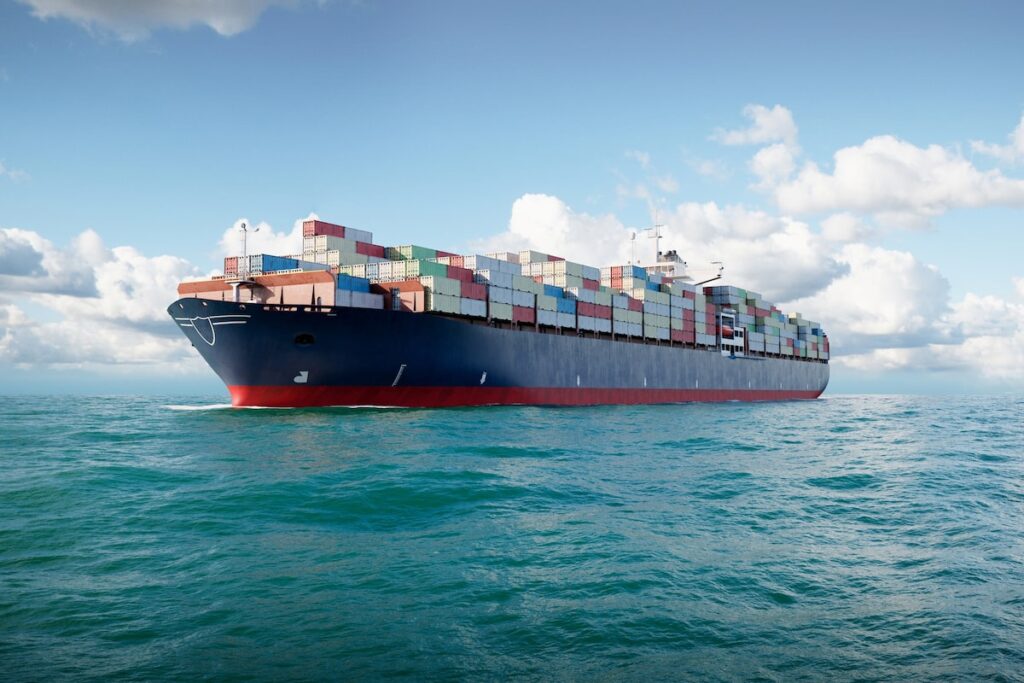Open this photo in gallery:
Tracking devices aboard cargo ships are the foundation of a highly efficient, AI-powered global supply chain. Getty Images
The global shipping industry is undergoing major technological transformation that is making the movement of goods faster, cheaper and more reliable.
Prior to the COVID-19 pandemic, the complex global network of shipping lines, ports, freight forwarders and other actors had little appetite for modernization. Tracking technology was widely available, but it was relatively expensive, unreliable and typically reserved for high-value or sensitive goods.
“The technology wasn't there yet and it wasn't really a priority,” says Kent Rawlings, co-founder and president of Skylink Solutions, a Toronto-based internet of things (IoT) solutions provider.
Rawlings explains that all that changed during the pandemic, when ports with strained capacity began refusing to accept cargo.
“Knowing where your cargo is became a huge problem,” he says. “They would literally park cargo containers anywhere and then not remember where it was. The ports would be full or the containers would be on ships at sea and you wouldn't know where they were. From a logistical standpoint, it was a total disaster.”
During this time of turmoil, efforts to modernize the industry have taken on even more urgency as technology becomes more reliable and more expensive.
Wireless IoT tracking devices typically have multiple ways of sharing location and other data, including WiFi, Bluetooth, GPS and radio signals, and Rawlings said the devices are programmed to use the option that's most reliable and uses the least battery power.
“They all have different power consumption. If it can't see Bluetooth and can't connect to WiFi, it will use GPS cellular to get a GPS position coordinate from the satellite and send that information over the cellular network.”
Rawlings says this information allows manufacturers to better manage inventory and production levels, more accurately predict when goods will reach customers and find more efficient transportation routes.
“The more inefficient the supply chain, the more expensive delivery becomes,” he said, adding that such data will become even more valuable in the age of artificial intelligence.
“AI can identify the least costly way to route a product from manufacturer to consumer as quickly as possible,” Rawlings says. “AI algorithms are driven by data, and tracking devices feed data into the AI platform. AI then works its magic and intelligence to drive efficiency.”
This is especially true for products that need to be stored within precise temperature ranges, such as meat, fish, produce and medicines.
A failure of an on-board cooling system aboard a container ship can ruin hundreds of thousands or even millions of dollars worth of product, a loss that is often only discovered once the ship has reached its destination.
“If there’s a disruption during a transoceanic cargo journey, we respond proactively, rather than reacting reactively at the port days or weeks later,” explains Jeff Shirley, founder and CEO of Rivercity Innovations, which specializes in temperature-sensitive monitoring solutions using long-range wireless technology (LoRa).
In 2021, the Saskatoon-based IoT company partnered with French satellite provider Kinéis to leverage the world's first low-earth orbit satellite network and LoRa hybrid system. Due to be launched into orbit in June, the project will enable River City to track the location and temperature of cargo anywhere on Earth and notify customers of any sudden changes.
This real-time data allows customers to directly alert the vessel to attempt to resolve the issue (if the container is accessible and the problem is fixable) or initiate replacement of lost goods early.
“A container full of meat can be worth anywhere from $250,000 to $1 million depending on the goods being shipped,” Shirley said. “If you receive notification that one of the containers has run out of diesel fuel, has been opened, or something has gone wrong, you may have a chance to prevent a loss before the goods thaw or overheat.”
The technology to track the temperature of cargo during transport has been around for several years, but Shirley said costs have dropped significantly and battery life and reliability have improved dramatically.
He said hardware costs have fallen from more than $300 to about $200 per device, and monthly monitoring fees have dropped from the $25 to $50 range to single digits.
“For a fraction of the cost of traditional technology methods, we can attach devices to these items and track them anywhere on the planet,” Shirey said. “In our case, it's a device that can provide GPS and satellite tracking for 10 years, with recyclable batteries and no external antennas or plug-in power.”
The devices also serve as the foundation for a highly efficient, AI-powered global supply chain, he added.
“AI already optimizes shipping routes based on weather patterns and political issues,” Shirey says. “This is on a massive scale. It can predict the needs of the shipping industry supply chain using millions of variables: where, when, why, who, type of cargo, type of ship, backup plans, all done on the AI side.”



